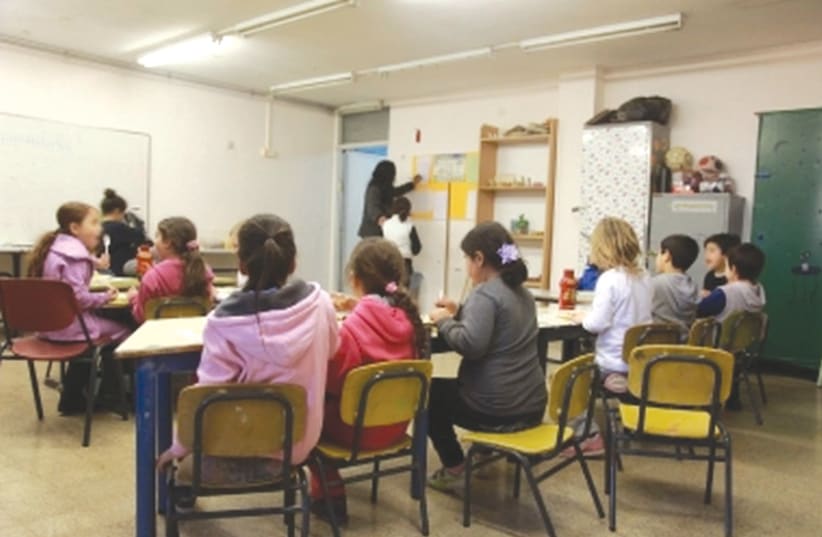Citing a "lost year" in the war on want due to the ongoing political stalemate, the report found that more than 2.3 million Israelis and 530,000 families are living in poverty today, including over one million children.
Unlike the State of Israel's official poverty report, due to be published later this month, which measures poverty based on income alone, the "alternative" Latet report measures poverty according to households lacking essential needs in housing, education, healthcare, food security and ability to cover the cost of living.
The alternative measuring tool records an additional 526,000 individuals as living in poverty, compared to the official state report published by the National Insurance Institute (Bituach Leumi) in December 2018.
While poverty rates have remained almost unchanged since Latet's multi-factor measuring tool was introduced six years ago, the report detailed a worrying increase in the depth of poverty and barriers to poverty reduction.
"For many years, Israeli governments have maintained poverty through a poor set of priorities that has abandoned one-quarter of the country," said Latet chairman Gilles Darmon and executive director Eran Weintrob in a joint statement.
"Frequent and continuous election campaigns, a paralyzed Knesset and a transitional government that cannot govern have lost us a year. The stagnation in poverty rates over a long period attest to that.
"Not only is there no multi-year operative program and an established policy, but everything is also stuck. But unlike politics, our lives and those of the poor living among us do not stop."
According to the report, the main dietary component for more than three-quarters (76.3%) of children receiving state support was carbohydrates, or breads and spreads. Over half (54.5%) of children were reported to have eaten reduced-size meals or skipped meals altogether during the past year.
A total of 79.8% of families receiving state support have at least one earner in the household and 19.8% have two regular earners, the report revealed. Often described as the the “working poor," low wages and failure to take advantage of available benefits leaves these households in poverty.
The report also stated that 97% of elderly citizens supported by a state old-age pension are not able to live in "dignity." A total of 78.2% said they experience loneliness and 59.3% are unable to make necessary adaptations to their home to suit their needs, due to their financial situation.
In addition, some 61.9% of benefits recipients said they are in debt, a far greater share than the general population (35.3%).
"When there are no systemic tools, governmental plan, and long-term processes, there is no chance of escaping poverty or creating tangible social change," said Darmon and Weintrob.
"The next government will already have an opportunity in the 2020 budget to stop maintaining poverty levels, to enable dignified living for the elderly and a better future for one million poor children."
In order to reduce poverty, Latet states, the government must adopt a new set of national priorities and implement a series of measures.
According to the non-profit, necessary policy measures include a cross-ministry government program to combat poverty; establishing annual and multi-year targets to reach the average OECD poverty rate within a decade; establishment of a national authority or tasking a ministry to tackle poverty; allocating 1.5% of the state budget to addressing poverty and social inequality; and allocating NIS 100m. for the establishment of a national food security program.
